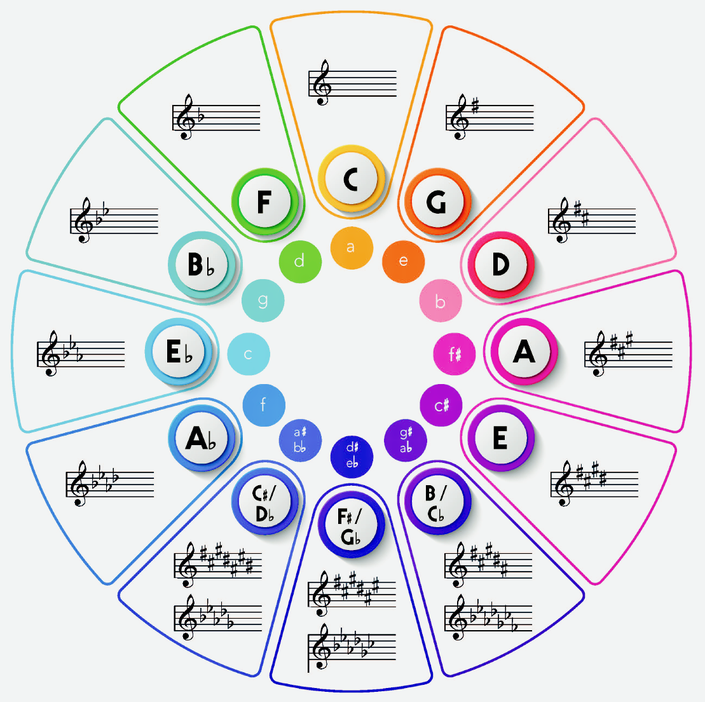
Passing Grade 5 Theory doesn't have to be a struggle!
I have helped countless students achieve a confident pass in Grade 5 Theory, and I can help you too. With my Circle Harmony method, I make Grade 5 Theory fun and useful beyond the exam.
Many instrumental teachers teach Grade 5 Theory the way they were taught - using standard workbooks designed around the exam. Students learn to pass the exam, but their grasp of music theory can be vague and unconnected to their music-making. While this approach does the minimum job, students struggle through a process that often feels frustrating and a bit pointless, and Grade 5 Theory becomes a mere hurdle to jump.
But learning music theory is an opportunity to become a better player, singer, composer - all-round musician!
With my approach to Grade 5 Theory, students will...
- Learn important fundamental concepts of music theory in small, achievable steps. This approach takes the mystery out of music theory and makes it all make sense!
- Apply those concepts on paper as well as at their instrument for deeper understanding. Working with these ideas both at and away from the instrument ensures that this system of ideas is embedded in both intellectual and muscle memory.
- Get plenty of practice answering exam-style questions to ensure confidence on exam day. This is the final step, and the most rewarding. Once students understand this system of harmony, exam questions become simple.
All of this is done with my support and supervision in weekly Q&A sessions. All learning materials are provided, including:
- lesson videos - these are great for revisiting concepts between Q&A sessions, which means a student never has to wait a week to refresh their memory;
- worksheets - designed to "workout" each concept as it is learned and build the bigger picture one step at a time;
- weekly Q&A sessions - this is where students can show their work and get direct feedback from me as well as work on applying theory concepts with me and other students.
Definitely sign up! Lona is a fabulous teacher who has an unbelievable amount of knowledge of music theory and the rare ability to pass that knowledge on in an understandable way to her students. She also has a huge amount of patience and is totally approachable so you never feel like you can't ask questions.
- Gemma Best
Lona's training is so carefully designed to build up knowledge, before you know where you are, you're doing it! Lona steps you through the process so carefully and patiently that it becomes effortless.
- Tara Exton
There are no other courses that offer the mentorship, real life videos, walk through support all the through the course and worksheets. It's a course for every learning style. Whether you're a note taker, auditory learner or practical, it suits everyone.
- Dawn Taylor-Moate
Your Instructor

I have been teaching music theory and composition since I began my
graduate education in 1999. While studying for my MA in Music
Composition at the University of Pennsylvania, I started
teaching music theory to Penn
undergraduates. I have since taught music theory and composition at
Interlochen Arts Camp in Michigan, Plymouth University (UK), Dartington
College of Arts (UK), and in my own studio at home. I own and operate
the Totnes School of Piano.
I entered my undergraduate studies completely focussed on studying piano
performance, but I quickly found that studying music theory improved my
sight-reading and my ability to memorise music; it heightened my
musical expression and understanding at the piano; and it eventually led
me to composing music.
I hold dual undergraduate degrees in piano performance and music theory, an MA and PhD in composition from the University of Pennsylvania in Philadelphia, and two MFAs in performance (improvisation emphasis) and electronic music and recording media from Mills College in California, where I won the Flora Boyd Piano Performance Prize in 2011.
But most importantly, I have a passion for teaching music theory. I
believe it is the key that unlocks all musical treasures. It can be
engaging in its own right, but music theory, for me, is best viewed as a
means toward greater musical expression and creativity.
